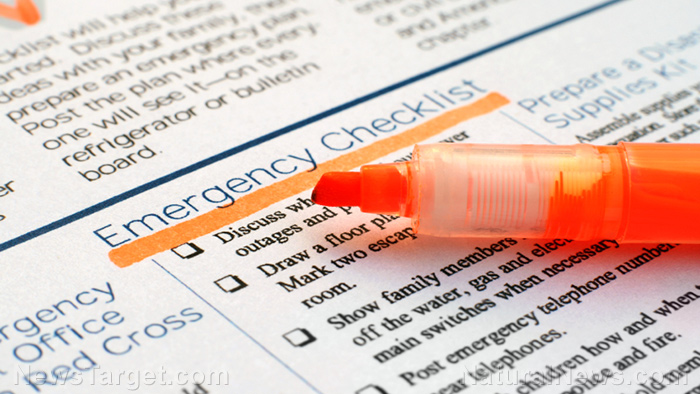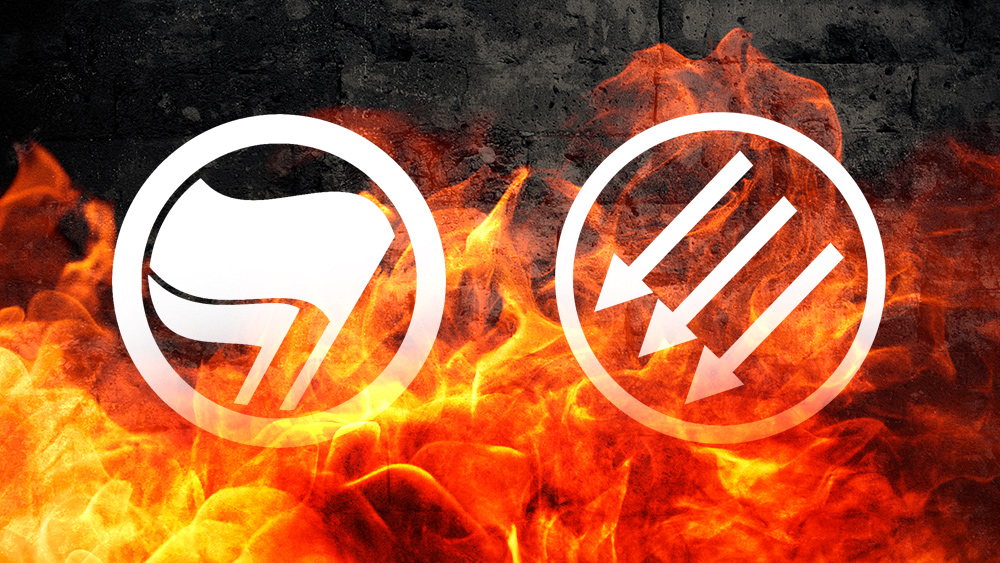
As a prepper, you don't need spy training to improve your situational awareness. You just need to be calm and alert when disaster strikes. (h/t to TheSurvivalMom.com)
Situational awareness means knowing what is going on around you, how it affects you and what actions you need to take if your safety is endangered. This skill is important whether you're getting groceries at the nearest store or vacationing in a foreign country.
According to the Federal Bureau of Investigation website, there were 538,203 violent-crime incidents recorded in 2020. This is an estimated statistic based on data from 85 percent of the country's law enforcement agencies.
There's a chance that this figure would be lower if more people were more vigilant when things went south. But this isn't victim-shaming.
Rather, you need to know that in the eyes of a criminal, you're an easy target if you're walking at the mall with your face glued to your phone instead of being alert and aware. Criminals also tend to target people who seem timid or afraid, but exercising situational awareness will give you an air of confidence.
When you're walking in public, raise your head and watch your surroundings. This makes it easier to detect and avoid possible threats and react to them quickly and efficiently when SHTF.
The level of control you have will significantly increase when you incorporate the three levels of situational awareness. (Related: 10 Prepper skills that will help improve your street-smarts.)
Three levels of situational awareness
Psychologist Mica Endsley developed this model of hierarchical stages of information processing. The three levels of situational awareness are perceiving, comprehending or understanding and predicting.
Level 1: Perceiving
When you're not at home, do you notice the appearance and behavior of other people? Do you know where the entrances and exits are?
The first level is about recognizing the important details because you will base your future decisions on these details. After you gather pertinent details, you must process them.
Level 1 is very easy to teach your children. If you're teaching younger kids, turn it into a fun but useful game by asking them how many people at the store are wearing blue shirts.
Children are curious and they love to be quizzed. Even if they are too young to understand, you are helping them learn and practice important observation skills.
Level 2: Comprehending or understanding
After you observe your surroundings, you need to interpret the data and decide what it means so you know if anything stands out and can harm you.
This will help you prepare for dangerous situations, like when a stranger is loitering near your kids at the park and acting strangely. Observe him and use your skills to decide if he is just a parent worried about his child getting hurt or if he is a threat to your kids.
Level 3: Predicting
Once you judge a potential threat and make conclusions about someone's behavior, predict or anticipate the possible outcomes and possible actions you'll take. This ensures that you have the best chance of achieving the most favorable outcome if SHTF.
Remember that in dynamic situations, new information emerges that you need to incorporate into the framework.
How to develop or improve your situational awareness
All these tasks seem confusing, but if you practice them regularly, they will eventually become second nature to you.
To become more situationally aware, you need to discipline yourself and develop the right habits and practice them regularly.
Six behaviors that will help you develop a mindset of being aware
Situational awareness is a learned behavior, so you don't need to be a superspy. You just need to intentionally and persistently practice the following:
- Be aware of your surroundings
- Notice other people. Focus on their body language, eye contact, posture and stride.
- Identify entry and exit points when in an unfamiliar location.
- Practice prediction.
- Always be vigilant.
- Trust your instincts.
In time, you can develop a higher level of situational awareness. Even your kids can improve their situational awareness. You can teach them to be attentive to current and future situations. If your kids are old enough, you can also teach them some ways to defend themselves.
Whatever your age, you can improve your situational awareness by being alert and practicing your observation skills. Situational awareness isn't about being paranoid, it's about being focused and not getting distracted by your phone while in a public place.
Watch the video below to learn how to develop situational awareness.
This video is from the Prepping101 channel on Brighteon.com.
More related stories:
Prepping 101: What is situational awareness and why is it crucial for your personal safety?
Self-defense basics: 4 Tips that will improve your situational awareness.
Sources include:
Crime-Data-Explorer.app.cloud.gov
Please contact us for more information.





















